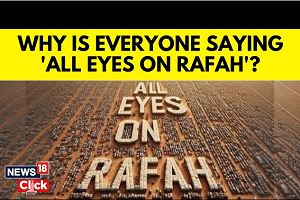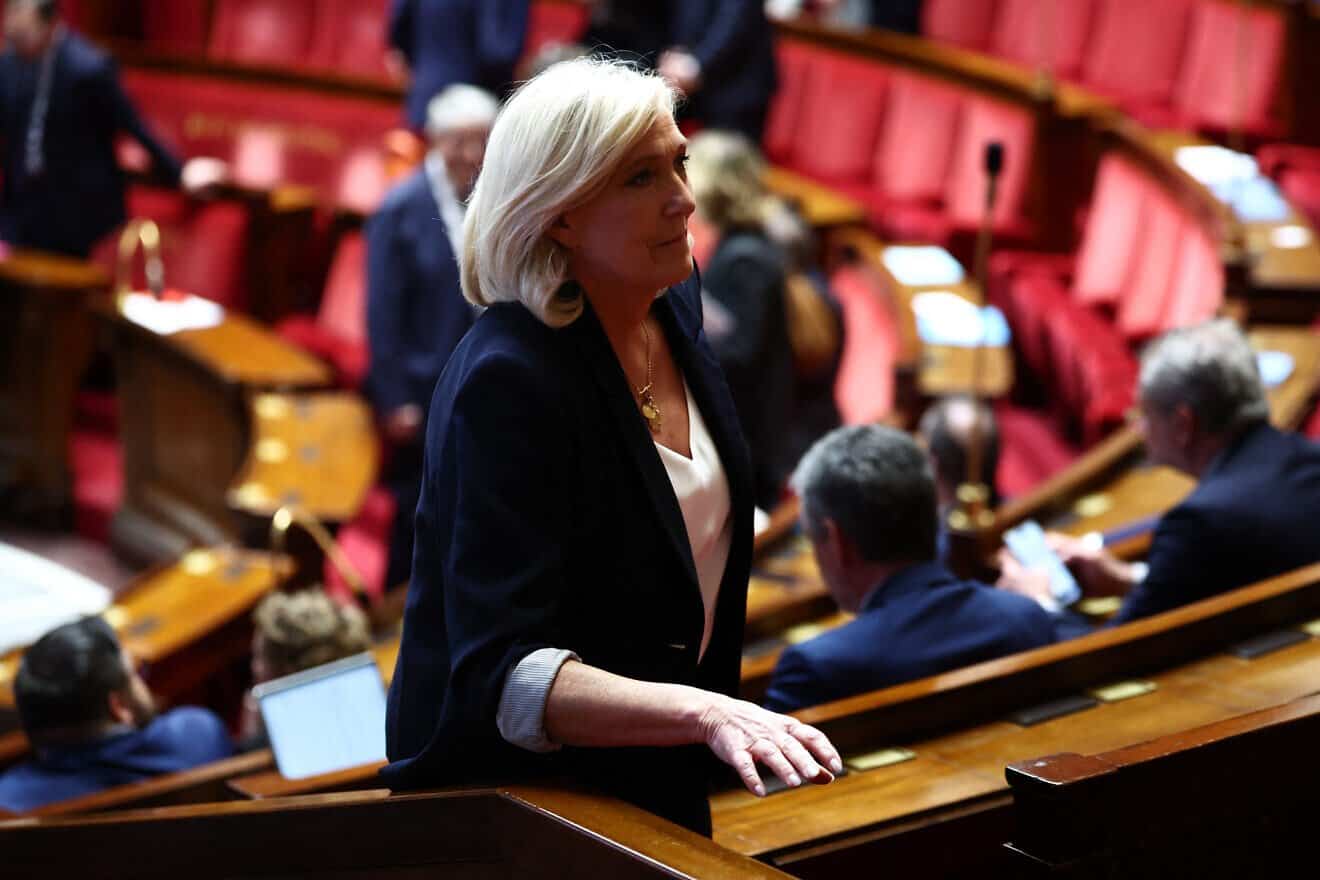 Hamas, część Bractwa Muzułmańskiego, organizacja zbrojona przez Katar, Turcję i Iran i wspomagana finansowo przez Unię Europejską, Amerykę i ONZ
Hamas, część Bractwa Muzułmańskiego, organizacja zbrojona przez Katar, Turcję i Iran i wspomagana finansowo przez Unię Europejską, Amerykę i ONZ
 Długi cień nazistowskiej twierdzy
Długi cień nazistowskiej twierdzy
Andrzej Koraszewski
Znana aktorka, do której mam sentyment i którą darzę dużym szacunkiem, zamieściła na swojej stronie apel o datki organizacji „Lekarzy bez granic”. Apel traktuje o tragicznej sytuacji w Gazie i potrzebie dostarczenia pomocy medycznej. Aktorka prosi o powstrzymanie się od komentarzy politycznych, obawiając się uwag rasistowskich i antysemickich. Tego samego dnia w innym miejscu czytałem sprawozdanie z rozmowy brytyjskiego dziennikarza z lekarzem, który jako członek tej organizacji pracuje w Gazie. Lekarz mówił swojemu rozmówcy, że oczywiście wszyscy lekarze i inny personel jego organizacji doskonale od lat wiedzieli o obecności Hamasu w szpitalach, o wydzielonych i zamkniętych częściach placówek medycznych, o tunelach, o wyrzutniach, o tym, że Gaza jest praktycznie militarną twierdzą. Na pytanie, dlaczego mówi o tym tylko anonimowo, lekarz odpowiada, że ujawnienie jego nazwiska oznaczałoby utratę pracy.
Podobne anonimowe głosy słyszeliśmy od pracujących na terenie Gazy dziennikarzy wielkich medialnych korporacji, co oznacza, że „Lekarze bez Granic”, wielkie redakcje, Czerwony Krzyż, UNRWA i inni z jakiegoś powodu ukrywają swoją wiedzę i świadomie współpracują z Hamasem.
Jedni ludzie potępiają Hamas, wiedząc o jego okrucieństwach i współczują mieszkańcom Gazy z powodu „nieproporcjonalnych” reakcji Izraela. Inni solidaryzują się z „Palestyńczykami” uważając, że faszystowski rząd Izraela popełnia ludobójstwo. Jeszcze inni identyfikują się z Hamasem i nie kryją swoich nadziei, że Hamas pewnego dnia zlikwiduje Izrael wraz z jego ludnością.
Mam wrażenie, że najważniejsze są postawy i poglądy ludzi dobrych i inteligentnych, ludzi budzących sympatię i szacunek, którzy ze zrozumiałych powodów i mając najlepsze intencje nie rozumieją i nie mogą zrozumieć, z czym właściwie walczy Izrael.
Słowa takie jak faszyzm i nazizm częściej służą jako wyzwiska niż są narzędziem analizy. Ilekroć używam określenia „islamonazizm” narażam się na zarzut przesady, obsesji, islamofobii. Czasem mam wrażenie, że częściej spotykam ten termin w publikacjach autorów ze świata arabskiego niż u autorów zachodnich (w zachodnich mediach głównego nurtu nigdy tego terminu nie widziałem).
W listopadzie 2015 saudyjski dziennikarz Abd Al-Rahman Al-Rashed pisał:
„Uważam, że problem związany jest z wadliwą diagnozą pierwotnego źródła. W terroryzmie nie chodziło ani o przywódców, ani o ich osobiste motywy, ale o ideologię szerzoną przez kaznodziejów, osobistości medialne, nauczycieli i wierzących głęboko w ekstremizm, którzy są bardziej niebezpieczni niż bin Laden i Zarkawi. Ci ludzie zdolni są do stworzenia alternatywnego przywództwa i organizacji pod innymi hasłami i na innych obszarach. Oni wynaleźli Abu Bakra Al-Bagdadiego jako alternatywę dla bin Ladena i Państwo Islamskie Iraku i Syrii (ISIS) jako alternatywę dla Al-Kaidy. Syria stała się nowym polem bitwy i filmy wideo bin Ladena zostały zastąpione przez Twittera, Facebooka i WhatsApp. Stali się jeszcze bardziej niebezpieczni.”
Saudyjski dziennikarz bez żadnych zastrzeżeń pisał, że dzisiejszy ekstremistyczny islam ma powiazania z faszyzmem i nazizmem, że jest oparty na koncepcjach dyskryminacji i eliminacji, że podobnie jak europejski nazizm wymaga od społeczeństwa absolutnej lojalności wobec ideologii i wrogości wobec innych, zarówno muzułmanów, jak i nie-muzułmanów. Pisze, że nie można zniszczyć islamskiego terroryzmu bez zakazania ich ideologii.
O historycznych i współczesnych powiązaniach islamskiego ekstremizmu z nazizmem jest ogromna literatura, ale ci, którzy ją znają, wydają się być bardzo nieliczni. Ci, którzy powinni ją znać, czyli eksperci z uniwersytetów i dostarczający nam informacji dziennikarze wydają się starannie unikać tej literatury.
Powiązania różnych ekstremistycznych grup islamskich z Bractwem Muzułmańskim są bardzo wyraźne, albo jak Hamas, partie polityczne rządzące w takich krajach jak Turcja czy Katar są otwarcie częścią Bractwa Muzułmańskiego, albo jak Talibowie, ekstremistyczne grupy w Pakistanie, Bangladeszu, czy w Afryce czerpią z ideologii Bractwa, podobnie jak reżim Islamskiej Republiki Iranu.
Samo Bractwo Muzułmańskie nie kryło swoich powiązań z niemieckim nazizmem i nigdy nie odcięło się od tej tradycji. Z inicjatywy tej organizacji pojawiło się kilka tłumaczeń Mein Kampf na arabski, turecki, urdu i perski. Duchową wspólnotę tych ideologii postrzegano w odrzuceniu demokracji, w systemie władzy podporządkowanej jednemu przywódcy, antyjudaizmie jako głównym zworniku ideologicznej wspólnoty z założeniem, że dehumanizacja Żydów, jest punktem wyjściowym do dehumanizacji pozostałych „wrogów Allaha”. (Dlatego też obok Mein Kampf najczęściej czytaną przez muzułmańskich ekstremistów książką z zachodniego świata są Protokoły Mędrców Syjonu.)
Moglibyśmy tu przypomnieć jak Adolf Eichmann w 1956 roku wyrażał swoje nadzieje, że jego dokonania zostaną ostatecznie docenione przez muzułmanów, lub jak Amin al-Husajni został powitany w Kairze po „ucieczce” po wojnie z aresztu we Francji. Gdzie znalazły schronienie setki oficerów SS. To wszystko jednak jest odległa historia, której zwykli ludzie mogą nie znać. Czy ktokolwiek obserwujący wiadomości mógł nie zauważyć wrzawy wokół rzekomego nazistowskiego salutu Elona Muska? Zapytaj dziesięć dowolnych osób ze swojego otoczenia, czy pamiętają tę wrzawę. Zapytaj te same osoby, czy kiedykolwiek widziały w mediach, które codziennie oglądają, zdjęcia terrorystów Hamasu, Hezbollahu, Huti oddających nazistowski salut i to tak, że nie ma najmniejszych wątpliwości, czy to jest nazistowski salut czy nie? Podejrzewam, że rezultat na próbie dziesięciu osób, tysiąca, czy stu tysięcy badanych byłby dokładnie ten sam.
Nazistowskie powiązania islamskich ekstremistów są świadomie i z premedytacją ukrywane, co może poważnie zniekształcać ważne sądy moralne normalnych, sympatycznych ludzi.
Taki zarzut brzmi podejrzanie, może zakrawać na teorię spiskową. Warto się zastanowić nad tym, co się nigdy nie przebija przez pancerz ochronny cenzury, (czy raczej autocenzury, bo przecież nie ma zakazu informowania, ani o nazistowskich salutach, ani o pochwałach Hitlera, ani o otwartych i zapisanych w konstytucjach zamiarach likwidacji Izraela i eksterminacji jego ludności, ani o programach nauki w szkołach, ani o indoktrynacji i szkoleniu Hamasjugend na letnich obozach, ani o kazaniach wzywających w świątek i piątek do męczeństwa).
Ostatnio słyszeliście (pewnie wiele razy), że Izrael zabija Palestyńczyków na Zachodnim Brzegu, czy widzieliście gdzieś przypomnienie słów Alego Chameneiego z czerwca 2023 roku, że ponieważ reżim syjonistyczny jest w biernej i reaktywnej pozycji, a grupy oporu są silniejsze niż kiedykolwiek, zbliża się kres Izraela. To było na niespełna cztery miesiące przed ludobójczym atakiem Hamasu na Izrael. Wcześniej od kilku lat powtarzał , że trzeba uzbroić Palestyńczyków na Zachodnim Brzegu tak jak już uzbrojono Palestyńczyków w Gazie. To nie była żadna tajemnica, te informacje podawała największa irańska gazeta. Jej główną część niektórzy mogli zobaczyć w postaci memu w mediach społecznościowych, ale nie w mediach głównego nurtu.

Gaza była uzbrojona po zęby i zmieniona w nazistowską twierdzę. Fakt, że to jest nazistowska twierdza z siecią tuneli, fabrykami broni i zmilitaryzowanym społeczeństwem, nie powinien być tajemnicą i nie był tajemnicą, albo ujmując to inaczej, ten fakt był tajemnicą wyłącznie dla zachodnich odbiorców wiadomości przekazywanych przez renomowane źródła.
Gaza była nie tylko największym na głowę ludności odbiorcą zachodniej pomocy „humanitarnej”, a społeczeństwa zachodnie były stałymi bywalcami nieustannych koncertów Wielkiej Palestyńskiej Orkiestry Symfonicznej pod batutą Antonio Manuela Guterresa.
W tej symfonicznej orkiestrze „Lekarze bez granic” to zaledwie piccolo, instrument dźwięczny, z charakterystycznym brzmieniem, drażniącym ckliwością koniuszki naszych nerwów.
Gaza stała się symbolem naszej więzi z islamonazizmem, naszej empatii dla „niewinnych ofiar ludobójczych izraelskich ataków”. Zapomniałeś już o wszechobecnym plakacie „Wszystkie oczy na Rafah”?

Dlaczego kazano nam wszystkim patrzeć na Rafah? Może dla tego, że Międzynarodowy Trybunał Sprawiedliwości nigdy nie orzekł, że Izrael popełnił ludobójstwo, ale, że wkraczając do Rafah, gdzie schroniły się setki tysięcy uchodźców z innych części Gazy „Izrael może popełnić ludobójstwo”.
Wielka Palestyńska Orkiestra Symfoniczna nigdy nie fałszuje, swoją muzyką zawsze wywołuje właściwe nastroje, budzi właściwe uczucia. Nie dowiedziałeś się już, że sam atak na Rafah nie spowodował praktycznie żadnych strat wśród cywilów.
Czy słyszeliście o Alice Wairimu Nderitu, która straciła pracę w ONZ, ponieważ odmówiła nazwania wojny Izraela z Hamasem ludobójstwem?
Pochodząca z Kenii Nderitu, została w 2020 roku zatrudniona na stanowisku przewodniczącej zespołu do spraw zapobiegania ludobójstwom. Jej czteroletni kontrakt nie został odnowiony, ponieważ – jak sama twierdzi – przeciwstawiła się naciskom, żeby powiedzieć, że w Gazie Izrael popełnia ludobójstwo, a jak twierdzi ONZ, nie przedłużono kontraktu z innych bliżej nieokreślonych powodów, ale z pewnością nie dlatego, że odmówiła powiedzenia, że Izraele popełnił ludobójstwo, bo przecież ONZ nigdy tego nie powiedział.
Wielka Palestyńska Orkiestra Symfoniczna, szybko pozbywa się muzyków, których ton narusza harmonię. Do szarych odbiorców wiadomości ze świata takie drobiazgi nie docierają, nic nie zakłóca doskonałego brzmienia. Ta historia jest ciekawsza od wezwań „Lekarzy bez granic” do datków na cierpiących mieszkańców Gazy. Urzędnik Biura Praw Człowieka ONZ, (który w lutym 2023 roku oświadczył w wywiadzie dla Sky New, że „Hamas nie jest dla ONZ organizacją terrorystyczną”), kiedy Alice Wairimu Nderitu wydała oświadczenie, że Izrael nie popełnia ludobójstwa w Gazie, wysłał do niej e-mail stwierdzający, że jej oświadczenie jest „jednostronne i może ono spowodować ryzyko utraty reputacji Organizacji Narodów Zjednoczonych jako niezależnego, neutralnego i bezstronnego organu”. Mail wysłany z kopiami do wszystkich świętych w orkiestrze spowodował burzę nie tylko wyzwisk, ale i zorganizowanych nacisków ze zbiorowymi domaganiami się zwolnienia czarnej owcy.
Nie powinniśmy się dziwić lekarzowi z organizacji „Lekarzy bez granic”, że o powszechnej wiedzy o zbrodniach Hamasu zdecydował się mówić tylko zastrzegając sobie anonimowość.
Cień nazistowskiej twierdzy, której władcy przysięgają, że nigdy nie przestaną zabijać Żydów, oskarżają Izrael o faszyzm i pozdrawiają się nazistowskim salutem, jest głębszy i dłuższy niż normalny odbiorca wiadomości może podejrzewać.
Możemy się długo zastanawiać nad pytaniem, co jest tego powodem, możemy zauważać mizerne zainteresowanie mediów setkami tysięcy protestujących przeciw nazizmowi w Turcji, czy jeszcze słabsze zainteresowanie protestującymi od lat przeciw nazizmowi w Iranie, czy dyskretne pominięcie faktu, że po dwóch skromnych demonstracjach przeciw Hamasowi w Gazie co najmniej jeden z jej uczestników został zadręczony na śmierć, a jego zmaltretowane zwłoki podrzucono pod drzwi jego rodzinnego domu.
W cieniu nazistowskiej twierdzy te obrazy są publiczności oszczędzane. Kultura wielkiej empatii wymaga niezależnego, neutralnego i bezstronnego podejścia do ideologii dziedziców nazizmu.
Nie dziwmy się znakomitej aktorce, że publikując apel o datki dla „Lekarzy bez granic” obawiała się antysemickich komentarzy.
Zawartość publikowanych artykułów i materiałów nie reprezentuje poglądów ani opinii Reunion’68,
ani też webmastera Blogu Reunion’68, chyba ze jest to wyraźnie zaznaczone.
Twoje uwagi, linki, własne artykuły lub wiadomości prześlij na adres:
webmaster@reunion68.com





